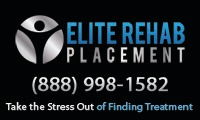Georgia Drug and Alcohol Treatment Centers
 Georgia is one of the most famous states in the American South, and is home to ever-famous Blue Ridge Mountains. It has an extensive list of reputable rehab facilities and a large number of support groups here to help you overcome your addiction.
Georgia is one of the most famous states in the American South, and is home to ever-famous Blue Ridge Mountains. It has an extensive list of reputable rehab facilities and a large number of support groups here to help you overcome your addiction.
Most everywhere in the “Peach State” has incredibly lush greenery and sweet mountainous air that can help put one’s mind and body at ease, making it an excellent location for someone recovering from addiction.
The Addiction Habit
Addiction affects millions of individuals and their families in the United States. It can have very harmful effects on interpersonal relationships, your work schedule and most importantly, the body itself.
Since drug addiction is a complex disease that alters the brain chemically, people who suffer from it require proper physical treatment and mental counseling. Like running on a treadmill at the gym, you cannot abruptly quit your drug habit without consequences.
Georgia Rehab Facilities
The best rehab centers in Georgia are in the northeastern regions of the state, where the forests and lakes are bountiful and nature’s beauty is most prevalent. Rehab centers in this area also tend to be in historic but modernized buildings, so they are both welcoming and state-of-the-art without being overly clinical.
If you prefer metro areas, Atlanta has several premium offerings that specialize in both residential and outpatient treatments.
Types of Programs
Residential rehabilitation requires you to live in a facility for a specified period of time. On the other hand, outpatient facilities give you the freedom to come and go as you please.
Bear in mind that each type have their respective benefits, and you may favor one over the other depending on your level of need. Below are the differences between the two.
Single Person vs Group Sessions.
If you need more fined-tuned care but don’t like the idea of being grouped with others, then residential facilities are your best bet. These facilities offer build a program based completely on your personal needs.
Outpatient programs require only a certain amount of time per day and allow you to continue your daily routine as normal. It is a great alternative to those who need less intensive counseling and cannot afford to suspend their responsibilities.
Structured Every Step of the Way
Residential rehab facilities are regimented, however, they give you much needed structure to help you maintain your focus. This helps insulate you from any influences or factors that may contribute to a possible relapse.
You will need to spend time away from friends and family, but you can take solace knowing that know you are in good hands. Your loved ones will feel the same knowing that you are in a safe environment that is dedicated to your full recovery.
Outpatient facilities are structured as well, though your freedom to come and go as you please require you to make wise decisions concerning your possible triggers. You will be able to consult loved ones for familial support if needed.
24/7 Medical staff
Detoxing is a necessary part of any type of rehabilitation. However, it must be done with proper monitoring and care. With residential rehab, you will have a medical team that will oversee the entire process in a well-equipped facility.
If you have mild to moderate addiction, you will benefit the most from an outpatient rehab program. It requires you to make regular visits a local hospital or specified facility for psychosomatic evaluations while detoxing. However, you’ll receive drug abuse education and counseling in the process.
Overall Wellness and Recovery
Addiction is not just a bodily complication; mental health comprises half of the battle when you are trying to achieve sobriety. Residential rehabs focus on full well-being, not just your addiction.
Outpatient facilities operate similarly, though they rely more on periodic meetings. This is to help patients adapt their sessions to their daily schedules.
Alcohol Rehab Centers
The National Institute on Alcohol Abuse & Alcoholism (NIAA) discovered that there are approximately 17 million adults who abuse alcohol, and 1 in 10 children live in a home with a parent who has a drinking problem in the United States.
SAMHSA’s 2015 Behavioral Health Barometer report states that in Georgia, “about 506,000 individuals aged 12 or older (6.2 percent of all individuals in this age group) per year in 2013–2014 were dependent on or abused alcohol within the year prior to being surveyed.”
Treating Alcohol Addiction
Alcohol rehab centers treat addiction in a number of ways. However, detoxification is primary step in most treatment programs. Purging your body of the chemical is the lion’s share of the work needed to jumpstart your road to sobriety.
As referenced earlier, if you go the residential treatment route, you’ll need to stay in a facility during your entire recovery. Inversely, outpatient programs require weekly attendance, and you be able to return home after each meeting. You can maintain your work schedule, spend time with family and enjoy other activities between sessions.
If needed, your doctor may also prescribe you one or more medications during your recovery. These drugs mitigate any potential cravings and also help you manage withdrawal symptoms. In more serious scenarios, there are some medication that purposefully induce heightened nausea when consuming alcohol in an effort to get you to quit, such as acamprosate, naltrexone, and disulfiram. These medications are used primarily in cases where alcohol consumption is compulsive and beyond simpler methods of treatment.
Drug Rehab Centers
Drug addiction, whether illicit or prescription, is a toxic and highly-damaging habit, that can have very serious long-term health effects if not controlled. Georgia offers a great selection of treatment options, including a number of faith-based programs for those who are religious.
Treating Drug Addiction
Residential treatment programs are the ideal choice for those who have taken drugs over a long period of time, as they provide your body and mind a much-needed respite during recovery. You will safely detox in a medically-supervised setting and learn how to identify your triggers, as well as coping strategies to help you remain sober.
After completion, you will then be ready for an outpatient environment where you’ll be able to better manage your own addiction and take back control of your life. These types of facilities vary in terms of structure but they typically include group therapy sessions, psychotherapy, relapse prevention and individual counseling.
Mental Health Services for Dual Diagnosis
Mental health is a huge component of substance abuse, thus dual diagnosis plays big role regarding recovery. Examples of co-occurring disorders, such as gambling or sexual deviance, can complicate rehabilitation. However, trying to determine whether a patient’s substance abuse or mental disorder takes precedence isn’t easy.
In a dual diagnosis program, you will be examined for both, giving you the best chance overcoming your disorder and taking control of your life. Treatment methods for dual diagnosis patients include therapy, recovery groups, family programs, individual counseling, and other services.







